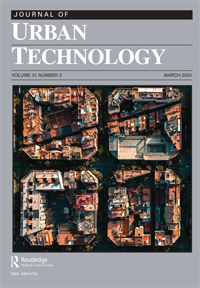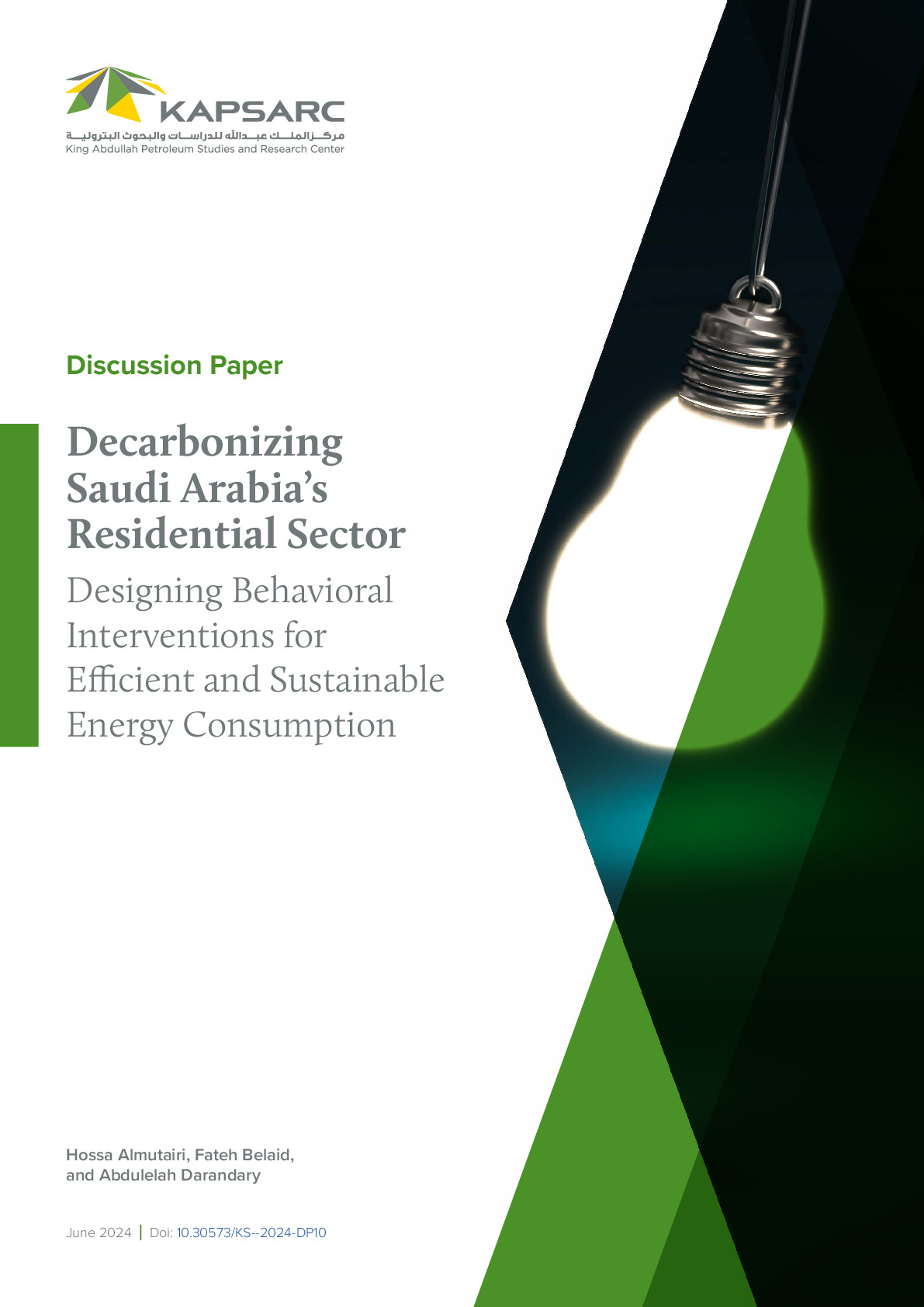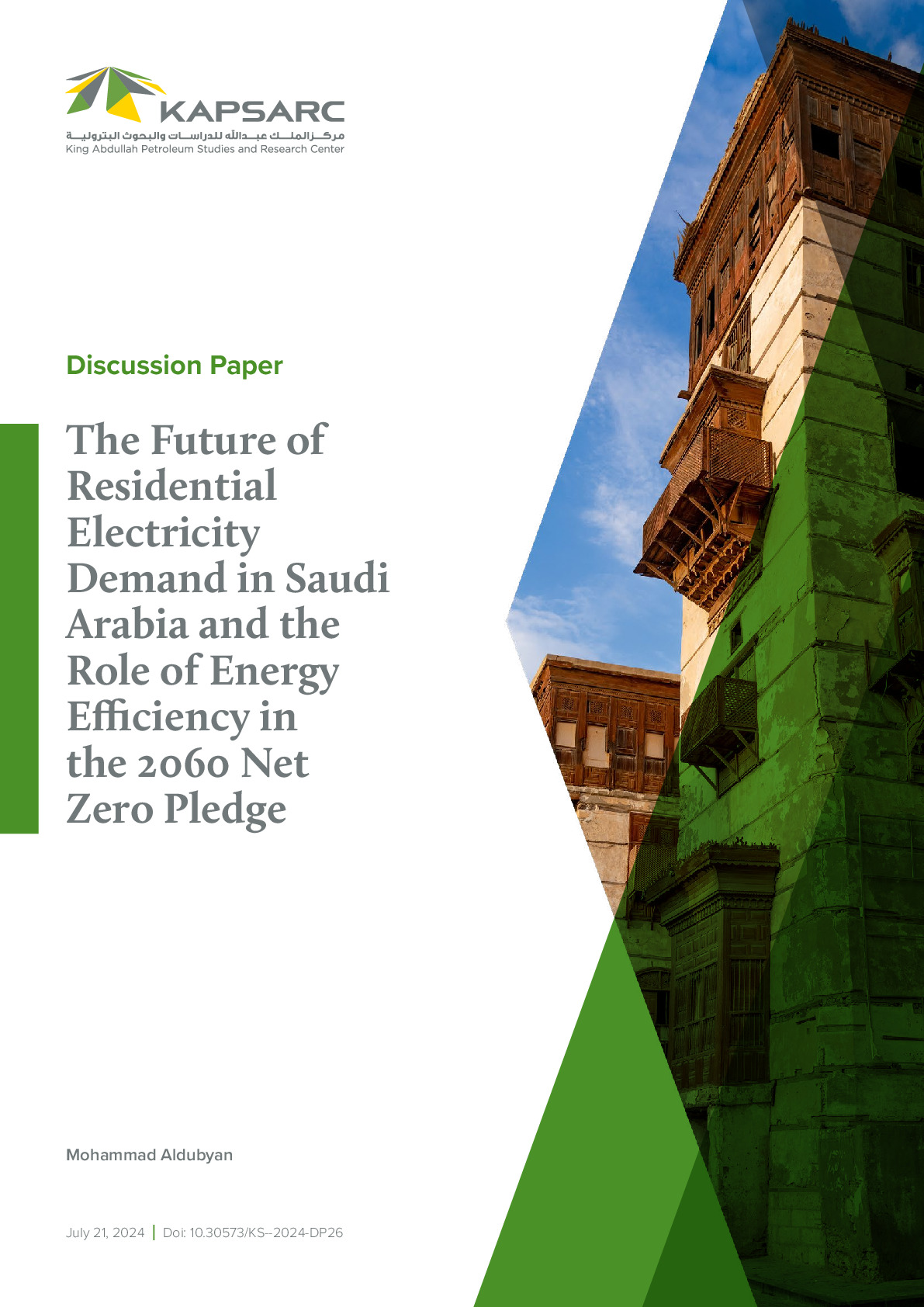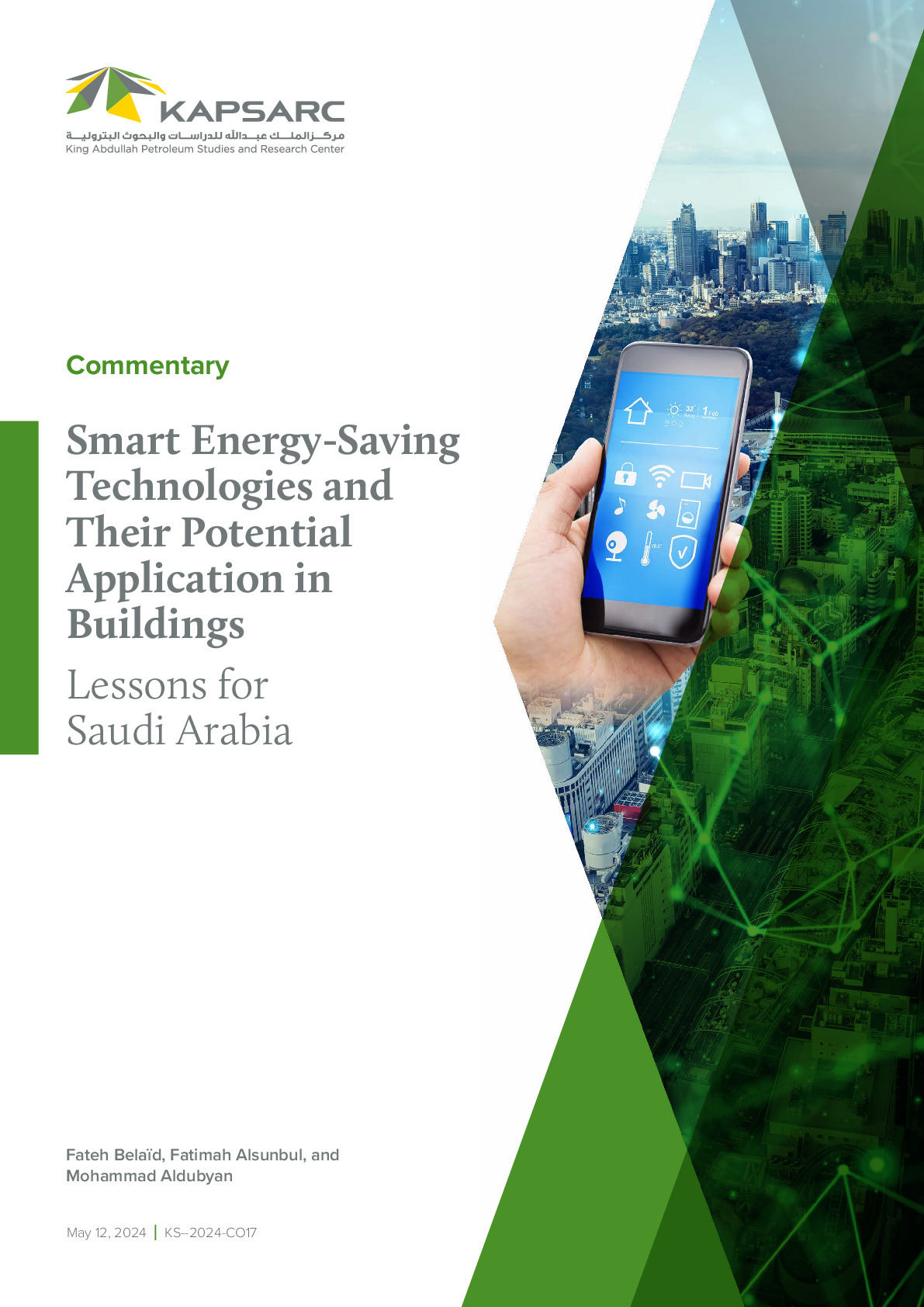In this paper, an economy-wide, net-zero pathway that enables Saudi Arabia to achieve net-zero greenhouse gas emissions by 2060 is investigated, with a specific focus on the critical role played by the building sector. An exploration is undertaken of the significance of energy efficiency measures, the circular carbon economy framework and the Saudi Energy Efficiency Center’s instrumental contributions in reducing energy demand and GHG emissions within the building sector.

Associate
Puneet is an Associate in the Climate and Sustainability program. Currently, he is working on scenario analysis and deep decarbonization…
Puneet is an Associate in the Climate and Sustainability program. Currently, he is working on scenario analysis and deep decarbonization pathways under the Climate Change Adaptation and Mitigation Partnership (CAMP) project at KAPSARC. Before joining KAPSARC, he worked with Council on Energy, Environment and Water in India where he co-developed the tailored version of Global Change Analysis Model for India (GCAM-India). Prior to CEEW, he has worked with Brookings Institution (India Center) where he co-edited an anthology on the coal sector in India. Across the 18 chapters, drawing from leading experts in the field, the book examines all aspects of coal’s future in India. He has a rich portfolio of published papers, policy briefs and reports. As an independent scholar, he has been writing for the G20, and leading national newspapers. Puneet holds a Master of Technology in renewable energy from TERI University, New Delhi.
Expertise
- Integrated Assessment Modelling
- Climate Change Mitigation
- Coal Transitions and Transport Economics
Publications See all Puneet Kamboj’s publications
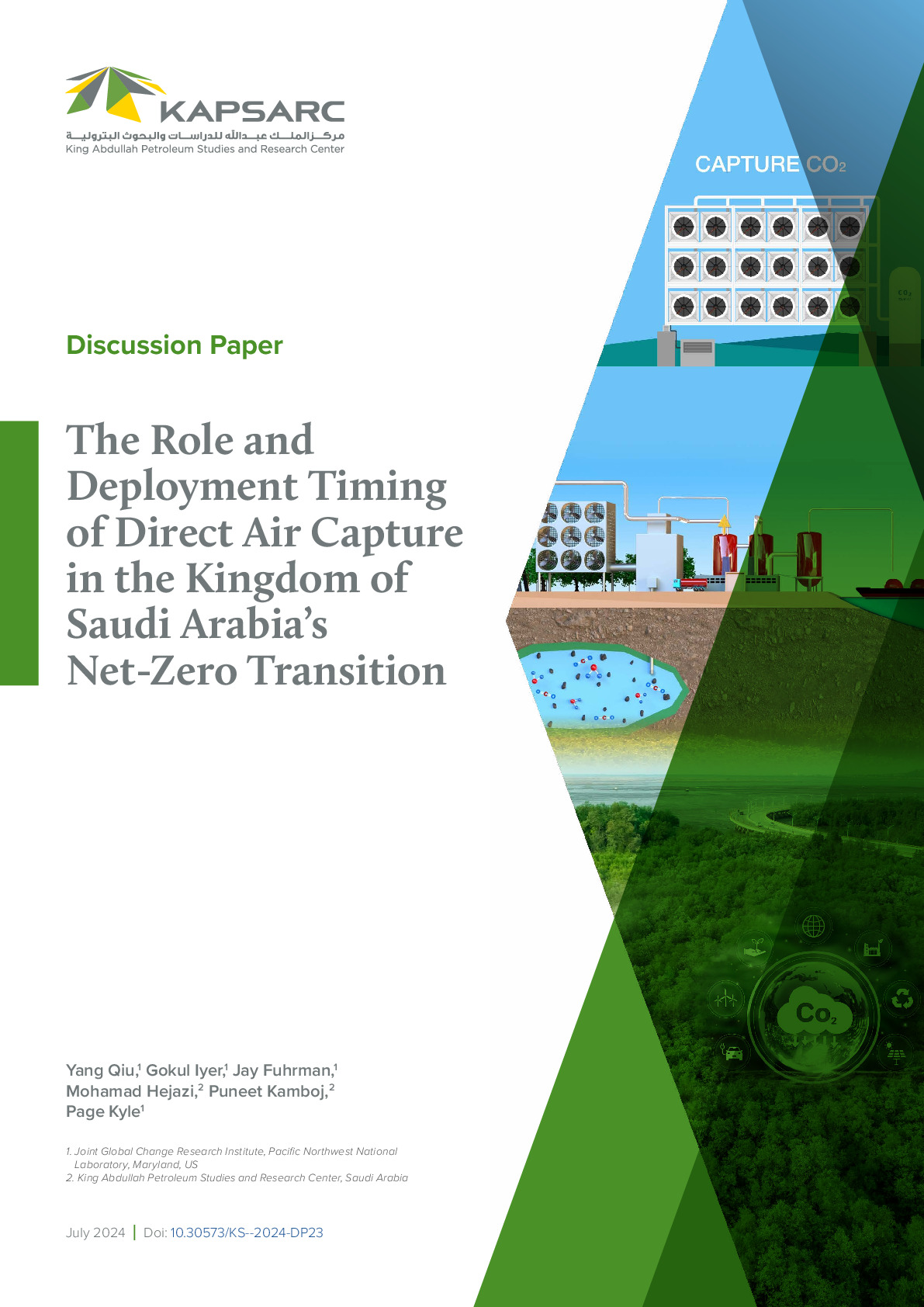
The Role and Deployment Timing of Direct Air Capture in the Kingdom of Saudi Arabia’s Net-Zero Transition
In this paper, an economy-wide, net-zero pathway that enables Saudi Arabia to achieve net-zero greenhouse…
8th July 2024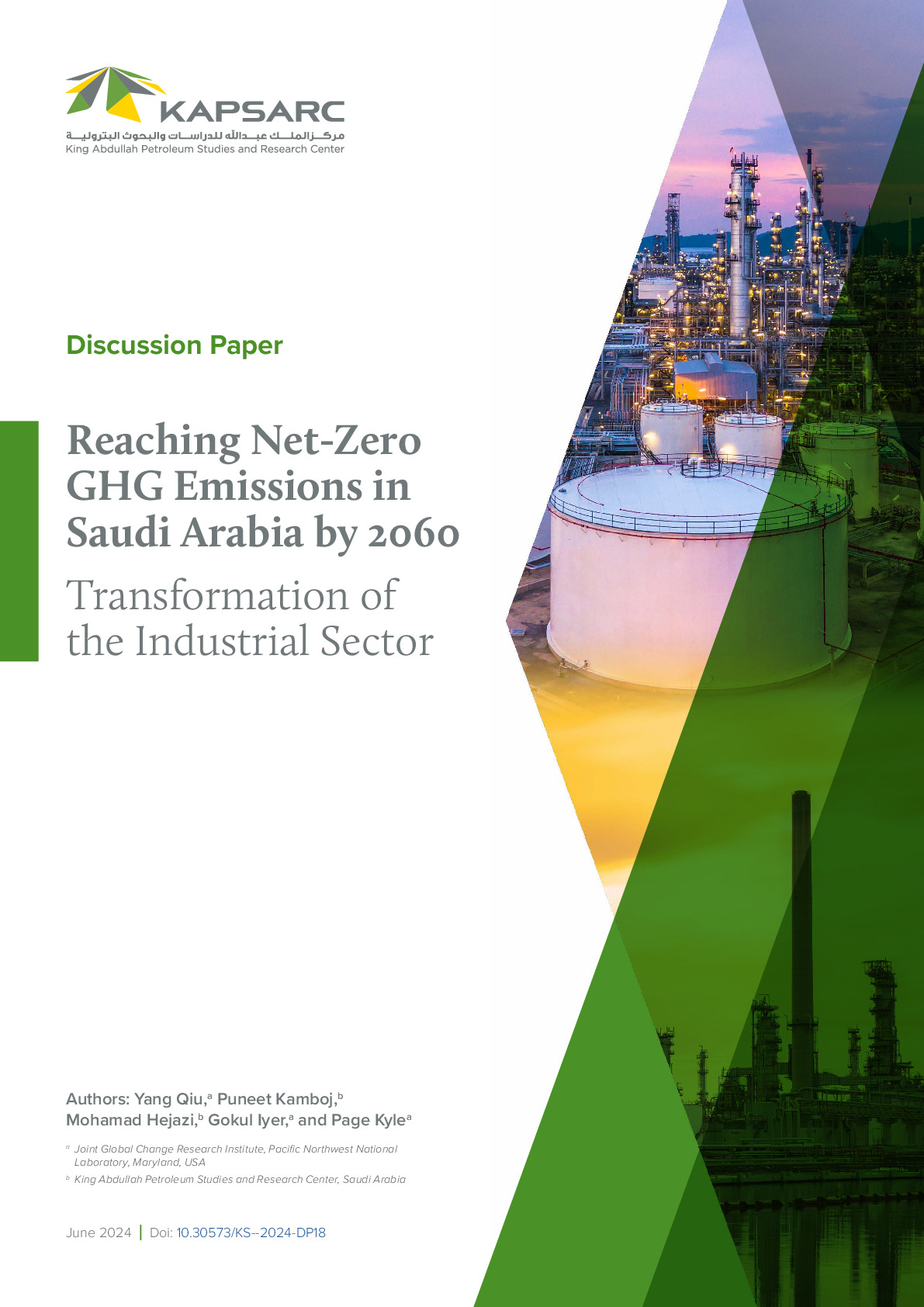
Reaching Net-Zero GHG Emissions in Saudi Arabia by 2060: Transformation of the Industrial Sector
In this paper, an economy-wide, net-zero pathway that enables Saudi Arabia to achieve net-zero greenhouse…
1st July 2024


